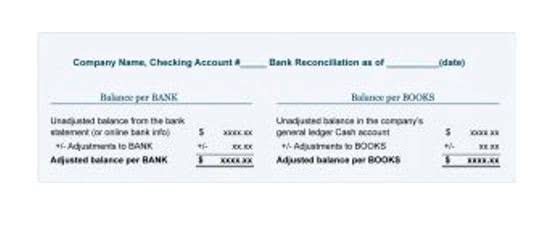
Implementing robust internal controls is essential for safeguarding a dealership’s assets and ensuring the integrity of its financial operations. Internal controls encompass a range of policies and procedures designed to prevent fraud, detect errors, and promote operational efficiency. One critical aspect of internal controls is the segregation of duties, which involves dividing responsibilities among different employees to reduce the risk of unauthorized transactions and errors. For example, the person responsible for handling cash receipts should not be the same person who records transactions in the accounting system. Optimize your car dealership’s financial health with expert accounting practices, from inventory management to revenue recognition and market trend analysis. In conclusion, adhering to essential accounting principles is crucial for dealerships dealership accounting to maintain financial integrity and accuracy.
- Financial reporting is crucial for maintaining transparency and building trust with stakeholders.
- Increase your desired income on your desired schedule by using Taxfyle’s platform to pick up tax filing, consultation, and bookkeeping jobs.
- An automated AP system provides more security, greater efficiency, lower cost and the ability to capture early payment discounts.
- Dealerships should consider daily reconciliations instead of waiting until the end of the month to reconcile their bank accounts.
- Dealership accountants must navigate federal, state, and local tax laws to ensure compliance and optimize the dealership’s tax position.
Tax Records

By analyzing PVR, dealerships can identify trends in customer preferences and adjust their sales strategies accordingly. Dealerships must adhere to various regulations, such as those set by the Financial Accounting Standards Board (FASB) and the Internal Revenue Service (IRS). By fostering a culture of compliance, dealerships can mitigate the risk of legal and financial penalties, protecting their reputation and financial stability. Tax considerations are a significant aspect of dealership accounting, given the complex nature of automotive transactions and the various tax regulations that apply.
Key Financial Metrics for Car Dealerships

Dealership accountants must navigate federal, state, and local tax laws to ensure compliance and optimize the dealership’s tax position. One of the primary tax considerations is sales tax, which applies to vehicle sales, parts, and services. Accountants must accurately calculate and remit sales tax to the http://tkdgretz.free.fr/wordpress/?p=242 appropriate authorities, ensuring that the dealership remains compliant with tax regulations. Dealership accountants work closely with management to develop budgets that align with the dealership’s financial goals. They analyze past financial data and market trends to forecast future revenues and expenses.
Importance of Consistent Financial Reporting
Periodically, it’s important to evaluate your accounting processes and see if there are any practices that can be revamped to work more efficiently. In the dynamic landscape of car dealerships in the USA, effective car dealership accounting is paramount. Accounting for car dealerships involves meticulous tracking of financial transactions to ensure accuracy and compliance. Accurate financial records are crucial for auto dealerships to maintain profitability and retain more customers. The accounting for a car dealership is quite complicated, since there are many profit centers, fixed assets, and employees, not to mention the large vehicle inventory.
- Dealerships must report their income and expenses accurately to determine their taxable income.
- In conclusion, adhering to essential accounting principles is crucial for dealerships to maintain financial integrity and accuracy.
- The use of AutoRaptor CRM can also enhance customer relationships and increase sales opportunities, ultimately contributing to the success of the dealership.
- Inventory affects various facets of dealership accounting, including financial reporting, cost control, and cash flow management.
- Accountants use various methods, such as the straight-line or declining balance method, to calculate depreciation.
Further reading: Profitable Operations: Mastering Accounting Practices for Auto Dealerships
It allows dealerships to recognize revenue when a sale is made, even if the customer has not yet paid. By regularly monitoring the gross profit margin, dealerships can identify if their pricing strategies are effective and if their operational costs are under control. It helps them understand the profitability of each sale and make necessary adjustments to improve overall financial performance. Effective accounting is crucial for maintaining accurate financial records, optimizing operations, and Accounts Receivable Outsourcing making informed business decisions. On the other hand, cash accounting recognizes revenue and expenses when cash is exchanged.
Expense Tracking

Internal controls and compliance are essential for safeguarding the dealership’s assets and ensuring the accuracy of financial reporting. Effective internal controls help prevent fraud, errors, and mismanagement, providing a framework for reliable financial operations. One of the key components of internal controls is the segregation of duties, which involves dividing responsibilities among different employees to reduce the risk of fraud and errors.

